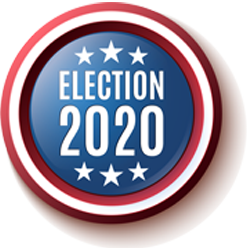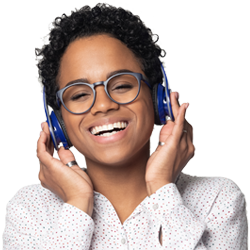Fayetteville shoppers are expected to spend a record $1.1 billion online in 2020, based on the most recent projections from eMarketer. This would represent year-over-year growth of 32.4%.
During the same period, according to eMarketer, receipts at brick-and-mortar stores have contracted by 3.2%. Overall, excluding gas and auto sales, e-commerce will account for 20.6% of all retail sales this year.
The Coronavirus pandemic is credited with this seismic shift in shopping behavior as consumers continue to avoid stores and opt for online shopping.
“We’ve seen e-commerce accelerate in ways that didn’t seem possible last spring, given the extent of the economic crisis,” said Andrew Lipsman, eMarketer principal analyst at Insider Intelligence. “While much of the shift has been led by essential categories like grocery, there has been surprising strength in discretionary categories like consumer electronics and home furnishings that benefited from pandemic-driven lifestyle needs.”
Even before the onset of the pandemic, 71.8% of Fayetteville consumers had bought goods online over the prior six months, according to Nielsen research. Purchases included clothing, health & beauty products, travel reservations, books, furniture, and groceries.
Read More
Topics
Retailer,
retail,
Website Traffic,
attribution,
best way to advertise,
radio advertising,
retail sales,
retail stores,
web traffic,
website visitors,
e-commerce,
retail traffic,
advertise on radio,
retail store traffic,
online shopping
There is positive news for the 8,600 small businesses in the Fayetteville, North Carolina metro area. A majority of consumers say they are ready to start shopping again.
A lifestyle survey just released from Nielsen indicates 53% of Americans believe that despite the continuing pandemic, life is beginning to normalize, and they are likely to resume typical activities. Nielsen refers to this majority as "Ready-To-Go".
According to the survey, Ready-To-Go consumers now perceive less risk, feel safer, and believe their cities are emerging from crisis.
The key takeaway for Fayetteville small business owners is that Ready-To-Go consumers are significantly more likely to start shopping within 30 days than the total population. These buyers, according to Nielsen, are looking to spend on home improvement, professional services, auto parts/repair, shopping, food & dining, and travel.
To capture a meaningful share of the money Ready-To-Go consumers will be spending requires local small business owners to advertise. By almost every metric, advertising on Fayetteville radio is the best advertising option.
Read More
Topics
Retailer,
roi,
return on investment,
retail,
small business,
small business owner,
fayetteville consumers,
fayetteville small business owners,
effective radio advertising,
consumer spending,
radio advertising,
retail sales,
retail stores,
small business marketing,
retail traffic,
advertise on radio,
retail store traffic,
small business advertising,
consumer confidence
Every week, according to Nielsen, significantly more consumers are reached by local radio than by Fayetteville area TV options.
For Fayetteville small business owners whose marketing budgets have been ravaged by the pandemic, though, the question is which of these media can provide the best return for their advertising investments. An ROI study conducted by Nielsen and commissioned by Cumulus Media | Westwood One provides a conclusive answer.
Between April 30 and May 27 of this year, Nielsen analyzed the sales results of a major retailer who conducted an advertising campaign on both radio and television during that period.
Using their Portable People Meter panel of 80,000 consumers, Nielsen measured the purchase behavior of consumers who were exposed to the advertiser's commercials on both radio and television. To learn more about the methodology, click here.
The result of the study indicates that the money invested in radio advertising had a much stronger return than the money spent on TV.
Here are the key findings of the ROI study:
Read More
Topics
Retailer,
roi,
return on investment,
television,
small business,
small business owner,
fayetteville television,
fayetteville small business owners,
radio advertising,
television advertising,
retail sales,
retail stores,
small business marketing,
cable television,
retail traffic,
retail store traffic,
small business advertising,
satellite television
There are more than 267,000 vehicles registered in the Fayetteville area. Many need new windshield wipers, shocks, struts, brakes, air filters, ignition coils, and the hundreds of other items that fill the shelves of local auto part dealers.
Despite the pandemic induced slowdown, business at auto parts stores has grown nearly 13% since February, according to the US Census Bureau.
This explosive growth in auto parts sales directly relates to the average age of cars on Fayetteville's roads.
"Per the latest study from IHS Markit, the current combined average age of vehicles has hit a record of 11.9 years," Rimmi Singhi wrote this week on NASDAQ.com. "The aging vehicles are a boon to auto parts, replacement, and repair companies. In a bid to ensure long-term functioning of the aging vehicle population, customers are making investments to replace faulty vehicle parts and components."
Also contributing to the rapid aging of cars on the road is the current demand for used versus new vehicles. According to the Bureau of Economic Analysis, the personal consumption expenditures (PCE) for used cars is 25% higher in August than it was during the same month last year.
Read More
Topics
Retailer,
retail,
small business,
small business owner,
fayetteville small business owners,
best way to advertise,
radio advertising,
used cars,
used vehicles,
retail sales,
retail stores,
small business marketing,
retail traffic,
retail store traffic,
advertising on radio,
small business advertising,
used trucks,
auto parts
There are approximately 66,000 households in the Fayetteville area with existing mortgages, according to the US Census Bureau, American Housing Survey. The median amount owed on these homes is $127,000.
Yesterday, there was extraordinary news for many of these borrowers and for Fayetteville area banks, credit unions, and mortgage companies
According to The Federal Home Loan Mortgage Corporation (Freddie Mac), mortgage rates have hit an all-time low of 2.86%.
With interest rates at this new level, 20 million American homeowners can now refinance their existing mortgage, according to Black Knight, a data analytics company specializing in homeownership life cycles.
By refinancing an existing mortgage, a Fayetteville area homeowner could considerably reduce the length of their loan or lower the amount of their monthly payments.
Local banks, credit unions, and mortgage companies create a great deal of revenue from refinancing.
Generally, a lender can expect to earn two to five percent of the loan principal amount in closing costs, according to BankRate.com. For a $200,000 mortgage refinance, for example, closing costs could generate between $4000 and $10,000.
For local financial companies to claim a significant share of the expanding refi market requires advertising. By any metric, advertising on Fayetteville radio is the most effective way to reach homeowners.
Read More
Topics
best way to advertise,
radio advertising,
refinance,
mortgages,
mortgage rates,
mortgage broker,
bank,
home owners,
advertise on radio,
credit union,
homeowners
On September 4, the political advertising window opened on Fayetteville radio and area TV stations. This is a 60 day period leading up to a general election when broadcast stations licensed by the Federal Communication Commission are obligated to offer candidates for national office the opportunity to buy commercials at the lowest unit rate (LUR).
For example, if a high-frequency advertiser like McDonald's earns the lowest rates on a particular Fayetteville radio station during morning drive-time, then any candidate for federal office must, during the 60-day political window, be offered the same rate for morning drive time on that station, regardless of frequency.
If, however, the McDonald's rate is contingent on the radio station's ability to pre-empt commercials without notice, then qualified candidates must agree to identical terms to receive the same rate.
To facilitate the purchase of commercials on Fayetteville radio, stations will supply candidates with a political rate-card. This card will show the LUR by time of day and by preemption parameters.
Here are other important facts about political advertising on Fayetteville radio.
Read More
Topics
issue advertising,
political advertising,
radio advertising,
advertise on radio,
advertising on radio,
political rates,
political rate card,
lowest unit rate
Advertising on local television and cable is becoming less attractive to Fayetteville business owners as viewers rapidly defect to alternative video entertainment sources including, Netflix, YouTube, Hulu, Amazon and Disney+.
Collectively these streaming services are referred to as Over-The-Top Television (OTT) and Connected-TV (CTV). Viewers can only access this OTT and CTV content via smartphone, tablets, computers, smart-TVs, Amazon Fire Sticks, and Roku Sticks, Nielsen reports that 94.2% of Fayetteville adults own at least one these devices. Furthermore, they are using them.
According to Nielsen, OTT and CTV networks now reaches 42.3% of all Fayetteville consumers every week.
Read More
Topics
television,
small business,
small business owner,
fayetteville television,
fayetteville small business owners,
best way to advertise,
radio advertising,
television advertising,
small business marketing,
pay-TV,
cable television,
advertise on radio,
small business advertising,
cable-tv,
satellite television,
ott,
ctv,
streaming video
Before COVID-19, most listening to Fayetteville radio happened outside the home. Consumers were tuning-in to their favorite stations from the car on the way to their job. Then, they tuned-in when they arrived at work. They listened again during the commute back home.
Nielsen recently surveyed consumers who worked from home before and during the novel coronavirus outbreak. The results show, as of June, 66% of respondents now work from home full-time as a consequence of the pandemic.
As consumers are compelled to work from their houses and curtail their commutes, the share of at-home listening to Fayetteville radio has grown by 27%, according to Nielsen.
Read More
Topics
best way to advertise,
effective radio advertising,
radio advertising,
coronavirus,
corona,
covid 19,
advertise on radio,
pandemic,
radio listening,
listening location,
time spent listening,
work from home
Fayetteville radio reaches more area adults every week than any other medium. During a typical seven-day period, according to Nielsen, 327,293 local consumers tune-in to their favorite AM and FM stations. This is significantly more than those who watch broadcast television, subscribe to pay-TV, browse social media, read a newspaper, or stream music from Pandora and Spotify.
Radio's omnipresence in the life of Fayetteville consumers is remarkable considering today is the medium's 100th birthday.
Read More
Topics
reach,
roi,
return on investment,
best way to advertise,
radio advertising,
reach & frequency,
advertise on radio,
advertising reach,
radio history
Despite all of the media options available for small business owners to market their goods and services, advertising on Fayetteville radio is still the best way to reach local consumers.
Adult consumers are spending 741 minutes per day consuming electronic media, according to a new study by Nielsen. This is 7.8% more time than they spent last year and 11.2% more than in 2018.
The typical daily media diet consists of radio, live TV, time-shifted TV, DVD/Blue-ray devices, game consoles, internet-connected devices, as well as internet via computers, smartphone apps, and tablet apps.
According to Nielsen, despite all of these media options, local radio reaches the most consumers every week.
Read More
Topics
Retailer,
reach,
roi,
return on investment,
retail,
small business,
radio effectiveness,
small business owner,
fayetteville small business owners,
best way to advertise,
effective radio commercial,
radio commercials,
effective radio advertising,
radio advertising,
effective advertising,
reach & frequency,
retail sales,
retail stores,
small business marketing,
retail traffic,
advertise on radio,
retail store traffic,
advertising reach
During the Spring of this year, 243,400 adult radio-listeners spent 1.96 hours per day listening to their favorite Fayetteville stations, according to Nielsen. Although local consumers had spent fewer minutes listening at the onset of the pandemic, the current time tuned-in remains little change compared to a year ago.
Some advertising experts had predicted that as consumers spent more time at home because of COVID-19 concerns, the hours devoted to radio listening would decrease. That, however, was not the case.
In Spring of 2019, according to Nielsen, 32.1% of radio listening occurred at home. During July of this year, in-home listening jumped to 41%. Despite the reduction in out-of-home activities, though, consumers still spent the exact amount of time listening to Fayetteville radio.
Read More
Topics
Pandora,
Spotify,
small business,
small business owner,
Sirius/XM,
fayetteville small business owners,
best way to advertise,
effective radio advertising,
radio advertising,
coronavirus,
corona,
covid 19,
small business marketing,
advertise on radio,
small business advertising,
podcasts,
pandemic
More than one-third of Fayetteville area households are 'cord-cutters' or 'cord-nevers'. This means, they have fired their cable or satellite television providers or never subscribed at all. Instead, these consumers are choosing to find their video entertainment elsewhere.
The number of local homes that subscribe to pay-TV services began plummeting in 2013. New technologies has allowed viewers to bypass cable and satellite for more compelling content at lower prices. These cord-cutters now depend on services like Netflix, Hulu, Disney+, and Amazon Prime to fill their multiple screens.
For many years, North Carolina small business owners have been investing a significant portion of their advertising budgets into cable-TV. The medium had proven to be a low-cost, high-reach alternative to buying commercial on over-the-air television stations.
Now, because of cord-cutting, there are 121,000 adult consumers with unconnected TVs. This profoundly diminishes the value proposition of advertising with local cable systems.
There is a powerful and affordable solution, however, for small business owners to reach both the diminishing cable audience and the expanding number of cord-cutters.
Read More
Topics
television,
small business,
small business owner,
fayetteville television,
fayetteville small business owners,
best way to advertise,
effective radio advertising,
radio advertising,
small business marketing,
pay-TV,
cable television,
advertise on radio,
small business advertising,
cord-cutters,
cable-tv,
satellite television,
cord-nevers
Based on projections from the National Retail Federation, Fayetteville area parents are expected to spend $46 million to equip K-12 kids for the upcoming school year. If so, then this shopping spree will be 29% bigger than last year's and the biggest take since 2012.
“By any measure, this is an unprecedented year with great uncertainty, including how students will get their education this fall whether they are in kindergarten or college,” NRF President and CEO Matthew Shay says.
“Most parents don’t know whether their children will be sitting in a classroom or in front of a computer in the dining room, or a combination of the two. But they do know the value of an education and are navigating uncertainty and unknowns so that students are prepared."
Along with pencils, paper, pens, and knapsacks, the NRF survey says 63 percent of K-12 families expect to buy computers and other electronics this year, up from 54% last year, and they expect to spend more at an average $274.44, up from $203.44 last year. The $71 difference accounts for the largest share of the overall increase in average spending of almost $93.
Also, because many parents are unsure if learning will take place at school or at home, back-to-school spending this year is expected to include home furnishings such as desks, chairs, and lamps.
To claim a meaningful share of this year's booming back-to-school economy, local retailers will need to advertise to let parents know that their stores are open, it is safe to shop, and the needed supplies are in stock.
By any metric, the best way to reach these parents is on Fayetteville radio.
Read More
Topics
Retailer,
millennials,
retail,
small business,
small business owner,
fayetteville small business owners,
effective radio advertising,
back to school,
radio advertising,
millennial parents,
retail sales,
retail stores,
small business marketing,
retail traffic,
advertise on radio,
retail store traffic,
small business advertising
Car radios came to Fayetteville in June of 1930. For just $120, about $1200 in present dollars, local drivers could install these early mobile devices into their Fords, Studebakers, Packards, and DeSotos,
The first car radios were built by the Galvin Manufacturing Company of Chicago. They named their invention, and eventually their company, Motorola.
Today, more than 267,000 car radios fill ears of area drivers with music, news, sports, and information. As a result, local radio reaches more consumers than all other media.
In a typical pre-COVID-19 week, according to Nielsen, 95% of adult consumers would tune-in to a Fayetteville radio station. This is significantly more than were reached by local TV, cable, social media, newspaper, or streaming media sites Pandora and Spotify.
Read More
Topics
small business,
small business owner,
fayetteville small business owners,
best way to advertise,
effective radio advertising,
in-car audio,
in-car listening,
radio advertising,
small business marketing,
advertise on radio,
vehicle traffic,
small business advertising
If you were one of the 281,300 adults who tuned-in to a Fayetteville radio station last week, then no doubt you heard multiple commercials that included phrases like 'troubling times', 'uncertain times', 'unprecedented times', 'new normal', and 'we're in this together'.
In March, as the pandemic began to disrupt consumers' lives, using these phrases was a powerful way for North Carolina small business owners to acknowledge the severity of the crisis and to exhibit empathy. But 120 days later, these words have become cliche and have lost potency.
A cliche, says the Oxford Dictionary, is "a phrase or opinion that is overused and betrays a lack of original thought."
According to the Writing Center at The University of North Carolina, the dependence on cliches could create a harmful perception of a business that uses them. For instance, these overused phrases can make an advertiser's message seem boring. They can be perceived as vague. They can be interpreted to be a sign of laziness. They can also result in a lack of credibility.
The words a Fayetteville area small business chooses for its advertising will have the most significant effect on sales. That's why eliminating cliches is critical.
Read More
Topics
commercial,
commercial length,
creative,
small business,
small business owner,
fayetteville small business owners,
effective radio commercial,
radio commercials,
effective radio advertising,
memorable radio commercials,
radio advertising,
small business marketing,
advertise on radio,
small business advertising,
scripts

















